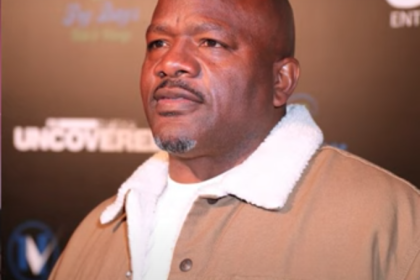On September 24, 2024, Marcellus Williams was executed in Missouri for the 1998 murder of Felicia Gayle, a case that has reignited debates over the death penalty, particularly regarding racial bias. Williams’ death marks the third execution in Missouri this year and underscores growing concerns about fairness in the American justice system, particularly for Black defendants.
The case against Marcellus Williams
Williams was convicted of breaking into Gayle’s home and stabbing her 43 times. Throughout his trial and appeals, Williams maintained his innocence. His conviction was largely based on the testimony of two witnesses: his ex-girlfriend, who claimed she saw him with stolen items, and a fellow inmate, Henry Cole, who alleged that Williams confessed to the crime. Both witnesses had criminal backgrounds and were reportedly motivated by a $10,000 reward.
Concerns over evidence and racial bias
Williams’ legal team raised critical concerns about the evidence used to convict him. Forensic evidence, including fingerprints and a bloody shoeprint, did not match Williams. DNA from the murder weapon also did not belong to him but was linked to individuals from the prosecutor’s office, who had handled the evidence without gloves.
Racial bias was a major issue during Williams’ trial. Of the twelve jurors, only one was Black, and the prosecution removed six of seven Black jurors from the selection pool. Despite the defense’s claims of racial discrimination, these concerns were rejected by the courts.
Calls for clemency
Williams’ attorneys sought clemency, highlighting that the victim’s family supported commuting his sentence to life in prison without parole. They argued that the family believed true closure would come through Williams’ survival, not execution. Nevertheless, Missouri Governor Mike Parson backed the execution, stating that Williams’ claims of innocence had never been credible in the eyes of any judge or jury.
The execution and its aftermath
According to KMOV-TV, Williams’ final statement was “All praise be to Allah in every situation!!!” None of Gayle’s family members were present at the execution; in fact, Gayle’s family opposed Williams’ execution, calling his death “not necessary,” reported USA Today. Williams’ execution made him the 100th inmate to be executed in Missouri since 1989.
Public reaction and broader implications
Williams’ execution ignited intense reactions, with many decrying it as a gross miscarriage of justice. Derrick Johnson, president of the NAACP, and Missouri State Conference President Nimrod Chapel Jr. condemned the execution in an open letter to Parson.
“Taking the life of Marcellus Williams would be an unequivocal statement that when a white woman is killed, a Black man must die. And any Black man will do,” they stated.
Williams’ case has also fueled the national debate on the death penalty’s disproportionate use against marginalized communities.
Racial disparities in death row and executions
Racial disparities in the death penalty are not isolated to Williams’ case. The National Association of Criminal Defense Lawyers states in a 2022 report that Black people make up 41 percent of death row inmates, despite being only 13 percent of the U.S. population. Six of the 24 people executed were Black as of November 2023, according to Statista. The racial bias in capital punishment cases, particularly against Black defendants, has been well-documented. Studies show that Black defendants are significantly more likely to receive the death penalty, especially when the victim is white.
The future of the death penalty
The execution of Marcellus Williams highlights both lingering questions about his guilt and broader systemic issues, including racial bias and unreliable evidence in death penalty cases. As the country continues to grapple with the future of capital punishment, Williams’ story will remain a focal point in discussions about racial justice, fairness and reform within the criminal justice system.















